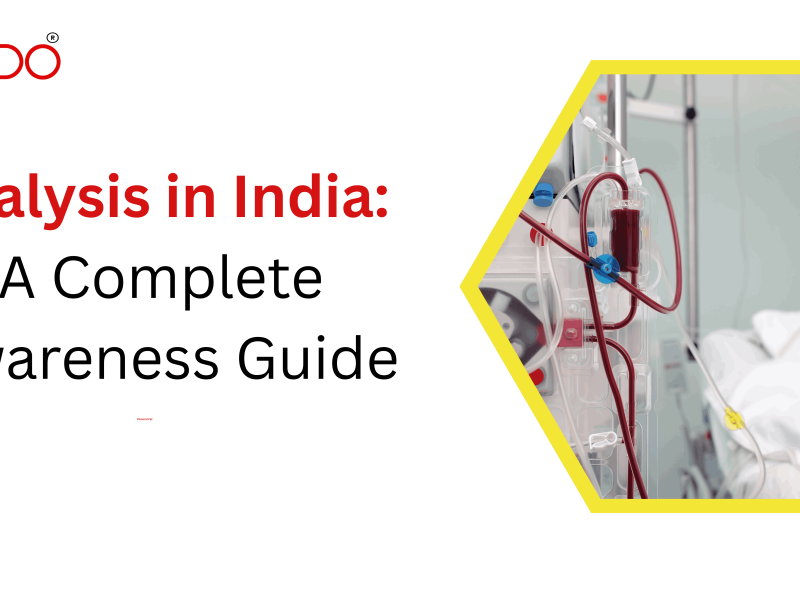Prostate cancer is the second most common cancer in men worldwide and a significant public health concern. The prostate gland, located just below the bladder, plays a key role in the male reproductive system by producing seminal fluid that supports sperm function. While small in size, the prostate can be the site of serious disease when abnormal cell growth occurs. In many cases, prostate cancer develops slowly and may not cause noticeable symptoms in its early stages. However, certain aggressive forms can progress rapidly and spread beyond the prostate, making timely diagnosis essential. Understanding the symptoms and causes of prostate cancer is crucial for early detection, effective management, and improved patient outcomes. This article provides a detailed overview of prostate cancer– Symptoms and Causes, focusing on its clinical presentation, underlying causes, and associated risk factors, with the aim of increasing awareness and encouraging proactive health screening among men.
Understanding Prostate Cancer
What is Prostate Cancer?
Prostate cancer occurs when cells in the prostate gland start to grow uncontrollably. Like other cancers, it begins with changes in the DNA of cells, causing them to multiply without regulation. Over time, these abnormal cells form tumors that can invade nearby tissues and potentially spread (metastasize) to other parts of the body, such as bones and lymph nodes.
Types of Prostate Cancer
Most cases are adenocarcinomas, which develop in the gland cells that produce prostate fluid. However, there are rare types:
-
Small cell carcinomas
-
Neuroendocrine tumors
-
Transitional cell carcinomas
-
Sarcomas
Though rare, these aggressive forms progress faster and are harder to treat.
How Common is Prostate Cancer?
-
Prostate cancer is the second most common cancer in men globally, after skin cancer.
-
It mainly affects men over the age of 50.
-
According to global cancer statistics, nearly 1 in 8 men will be diagnosed with prostate cancer during their lifetime.
Symptoms of Prostate Cancer
Prostate cancer symptoms may vary depending on the stage and aggressiveness of the disease. In early stages, many men experience no symptoms at all, which is why regular screening is important.
Early Symptoms
-
Changes in Urination:
-
Frequent urination, especially at night (nocturia).
-
Weak or interrupted urine stream.
-
Difficulty starting or stopping urination.
-
Feeling that the bladder is not completely empty.
-
-
Pain or Discomfort While Urinating:
-
Burning sensation or pain while urinating.
-
-
Blood in Urine or Semen:
-
Presence of blood (hematuria or hematospermia) is a warning sign.
-
-
Erectile Dysfunction:
-
Difficulty in achieving or maintaining an erection.
-
Advanced Symptoms
If prostate cancer progresses beyond the gland, it can cause more severe symptoms, such as:
-
Pain in the hips, back, thighs, or bones (indicating spread to bones).
-
Unexplained weight loss.
-
Fatigue and weakness.
-
Swelling in the legs due to lymph node involvement.
Symptoms Often Confused with Other Conditions
Not all urinary or sexual symptoms mean prostate cancer. Many are also associated with:
-
Benign Prostatic Hyperplasia (BPH): Non-cancerous enlargement of the prostate.
-
Prostatitis: Inflammation of the prostate.
This is why medical evaluation and diagnostic tests are necessary to confirm the cause.
Causes of Prostate Cancer
The exact cause of prostate cancer is not fully understood. Like most cancers, it results from a combination of genetic, environmental, and lifestyle factors. However, research has identified several key contributors.
Genetic Mutations
Cancer begins when DNA changes (mutations) cause cells to grow and divide uncontrollably. In prostate cancer, these mutations affect genes responsible for regulating cell growth and repair.
-
Inherited mutations: Some men inherit mutations (e.g., BRCA1 and BRCA2 genes, also linked with breast and ovarian cancer).
-
Acquired mutations: Most mutations develop over a man’s lifetime due to aging, lifestyle, or environmental exposure.
Hormonal Influence
-
Prostate cancer growth is strongly linked to male sex hormones (androgens) such as testosterone and dihydrotestosterone (DHT).
-
High androgen levels may stimulate abnormal cell growth in the prostate.
Inflammation of the Prostate
Chronic inflammation (prostatitis) has been suggested as a contributing factor, as it may lead to DNA damage and abnormal growth.
Diet and Lifestyle
-
High intake of red meat, processed food, and high-fat dairy may increase risk.
-
Obesity is associated with more aggressive prostate cancers.
-
Lack of exercise and sedentary lifestyle also play a role.
Age
-
The risk rises sharply after the age of 50.
-
Most prostate cancers are diagnosed in men over 65.
Family History
-
Having a father, brother, or son with prostate cancer doubles the risk.
-
The risk is higher if multiple family members are affected or if they were diagnosed at an early age.
Race and Ethnicity
-
African-American men are at the highest risk and tend to develop more aggressive prostate cancers.
-
Asian and Hispanic men generally have lower incidence rates.
Environmental and Occupational Exposure
-
Exposure to certain chemicals (e.g., firefighters, military personnel exposed to Agent Orange) has been linked to higher risk.
The Link Between Symptoms and Causes
Understanding causes helps explain why certain symptoms develop:
-
Hormonal imbalance → leads to abnormal prostate growth → causes urinary problems.
-
Genetic mutations → drive tumor growth → can result in blood in urine/semen or erectile dysfunction.
-
Cancer spread to bones → causes back or hip pain.
When to See a Doctor
Men should consult a doctor if they experience:
-
Persistent urinary difficulties.
-
Blood in urine or semen.
-
Chronic pelvic pain.
-
Erectile dysfunction not explained by other causes.
Regular prostate-specific antigen (PSA) tests and digital rectal exams (DRE) are recommended for men over 50, or earlier for those with family history.
Why Early Detection Matters
Prostate cancer is unique in that it often grows slowly. Many men live with it for years without serious health issues. However, aggressive forms can spread quickly and become life-threatening.
-
Early detection allows for effective treatment such as surgery, radiation, or targeted therapy.
-
Late detection often means cancer has already spread to bones or lymph nodes, making treatment more difficult and less effective.
Myths vs Facts
-
Myth: Only older men get prostate cancer.
-
Fact: While risk increases with age, younger men can also develop prostate cancer.
-
-
Myth: If I have no symptoms, I don’t have prostate cancer.
-
Fact: Early prostate cancer is often symptomless. Screening is crucial.
-
-
Myth: Prostate cancer always requires aggressive treatment.
-
Fact: Some slow-growing prostate cancers may only need monitoring (“active surveillance”).
-
-
Myth: A high PSA level always means cancer.
-
Fact: PSA can also rise due to infections or benign enlargement.
-
Reducing Risk
Though not entirely preventable, certain lifestyle changes may help reduce risk:
-
Maintain a healthy weight.
-
Eat a balanced diet rich in fruits, vegetables, and whole grains.
-
Limit red and processed meat.
-
Exercise regularly.
-
Discuss genetic testing if you have a strong family history.
Conclusion
Prostate cancer is a serious health concern for men worldwide, but understanding its symptoms and causes can make a crucial difference in outcomes. Early symptoms often involve urinary difficulties, erectile dysfunction, or blood in urine and semen, while advanced disease may spread to bones and cause pain or weight loss.
Causes are multifactorial, involving genetics, hormones, lifestyle, and age. While some risk factors—like age and family history—cannot be controlled, others, such as diet and exercise, can be modified to lower risk.
Most importantly, early detection through awareness and regular screening can save lives. Prostate cancer detected in its early stages is highly treatable and often curable. Men should be proactive in monitoring their prostate health, talking to their doctors, and making lifestyle choices that support overall well-being.
Your health is your responsibility. Being informed about prostate cancer is the first step toward prevention, early diagnosis, and effective treatment.



